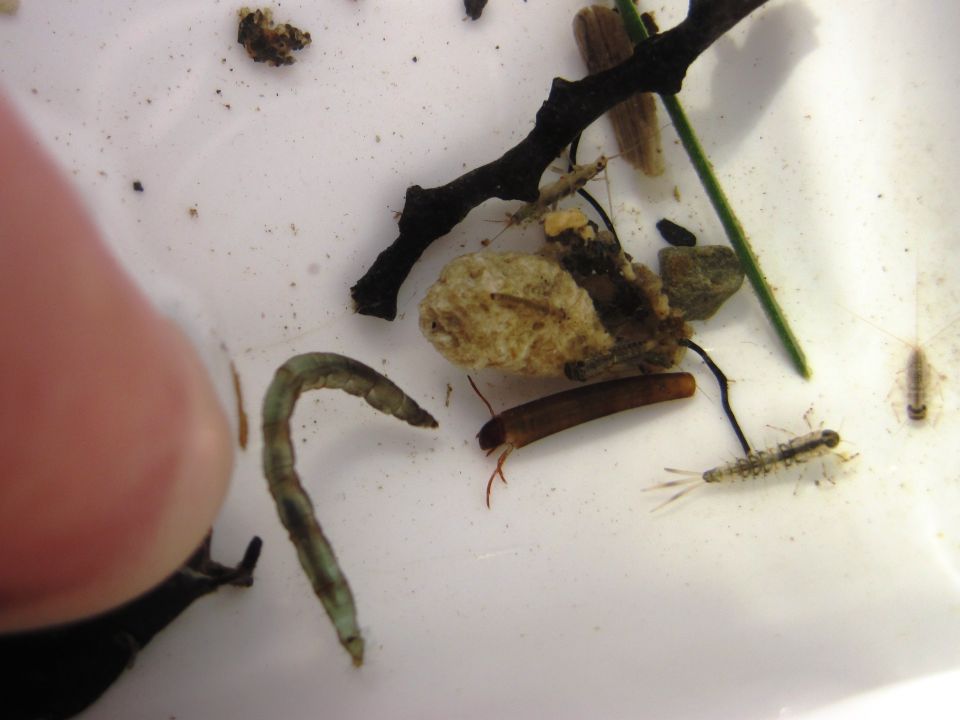Producers - plants
Producers are plants that get their energy from the sun.
Consumers - animals
Consumers are animals that get their energy from eating plants and animals.
There are three types of consumers:
- Herbivores – plant eaters that get all their energy from plants.
- Carnivores - meat eaters that get all their energy from eating other animals
- Omnivores – some animals, such as humans, eat both plants and animals
Decomposers
Fungi and bacteria break down organic matter, such as leaves, and this returns Nutrients to the ground.
Food chains

A simple food chain can show the flow of energy from one group of living things to the next. Image: LEARNZ.
A simple food chain does not often happen by itself. How living things feed is best shown as a food web.
Food webs
Food webs are made up of more than one food chain. An example of a food web in Lake Taupō is shown below:

Food webs are very important for survival. If one food source disappears then all other living things are affected because an animal must then find a new source of food. Image: LEARNZ.










